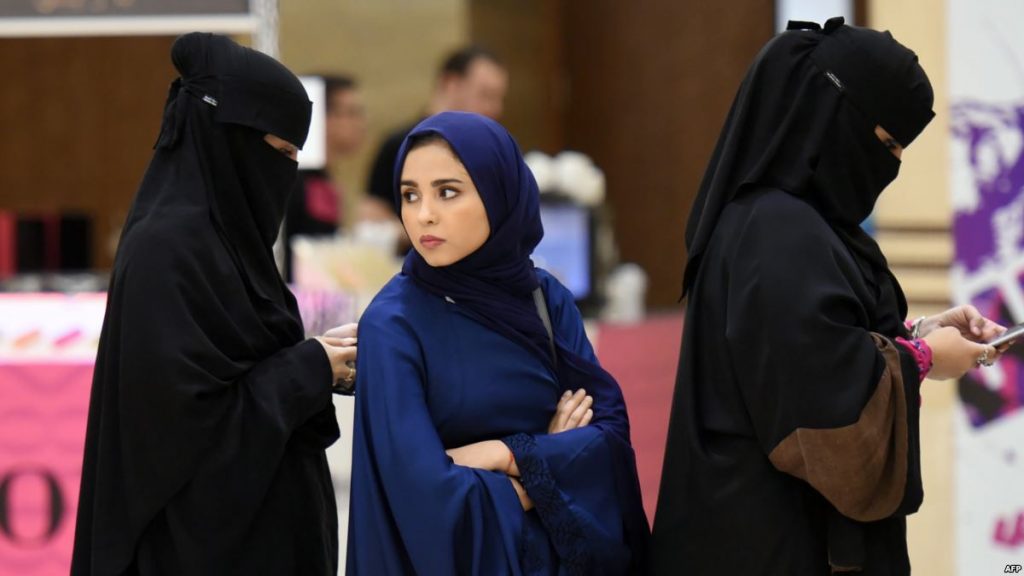IN THE MEDIA
Equality still a mirage for too many women
February 7, 2019 | Naomi Levin

The West Australian – 7 Feb 2019
There were a few double-takes recently when United Arab Emirates Vice President Sheikh Mohammed bin Rashid Al Maktoum took to social media to congratulate the winners of his country’s gender equality award. Why? All the winners were men. Followers of gender equality in the Middle East would hardly be surprised.
The Sheikh’s farcical awards came just weeks after Saudi teenager Rahaf al-Qunun, now Rahaf Mohammed, raised global awareness for the oppression of Middle Eastern women after fleeing her oppressive family and publicly pleading for the world’s help from Bangkok.
Women living in the Middle East, including Mohammed, are among the most subjugated in the world, with one country — Israel — an obvious outlier.
According to the 2018 World Economic Forum’s annual global gender gap report, Israel was 46th on the global index — well above the global average. Six of the bottom 10 countries were in the Middle East — Yemen, Iraq, Syria, Iran, Saudi Arabia and Lebanon.
There are many examples of female oppression in the Middle East.
To touch on just a few: Lebanese and Jordanian women are refused equal citizenship rights and if they have children with a foreign man, their children are refused nationality.
In Iran, women are detained for posting videos of themselves dancing on social media and cannot attend sporting events.
In Yemen, one in three brides are married before they turn 18 and the United Nations Population Fund, which provides support to young Yemeni women, reported on a nine-year-old girl who was forced by her family to marry in order to settle a family debt.
And as Rahaf Mohammed so publicly drew attention to, Saudi Arabian women must have the permission of a male relative to travel overseas, study in a foreign country, get married or open a bank account. Those who challenge the so-called “guardianship law”, have been imprisoned.
Knee-jerk reactions from those on the Left and those on the Right often do little to help the situation. On the Left, there is a failure to condemn practices like female genital mutilation, polygamy or child marriage for fear of appearing “politically incorrect” or culturally insensitive.
On the Right, there is a tendency to place blanket blame on Islam as the root of inequality without considering why some Muslim-majority countries like Indonesia, Malaysia, Brunei and Bosnia-Herzegovina have a much narrower gap between genders than those in the Middle East.
But what is it about much of the Middle East that has made it such a bad place for women to live? And what is it about Israel, a neighbour to many of these countries, that has allowed for the creation of an environment of equality?
First, Israel has the advantage of a common law legal system.
In Israel, denominational-specific religious law does apply to marriage and divorce, as well as a variety of other religious matters. While this has created challenges, particularly for those Israelis who are not permitted to use the services of an official religious court, including non-Orthodox Jews, the limited jurisdiction of religious courts means laws pertaining to equality are determined by the civil authorities. In Israel, there is fairness in family law and Israel’s Supreme Court has developed rules to protect gender equality.
As in other Western countries, Australia included, there are unacceptable levels of domestic violence in Israel, but there is a significant public protest movement calling for more action in both Jewish Israeli and Arab Israeli communities. There is also increased state funding to help combat domestic violence.
In the Israeli workplace there are laws banning gender discrimination and enforcing equal pay. The employment rate of Arab-Israeli women stands at 40 per cent, nearly double the rate in 2003.
Some say conflict in places like Syria, Yemen and Iraq has contributed to women’s oppression. But Israel, which has functioned in a state of constantly simmering conflict since its establishment, has never used conflict as a rationale to treat women poorly.
Rahaf Mohammed has hopefully started a real movement for greater equality.
Women deserve better than to be married off in childhood, required to beg for permission to study or travel and restricted from the citizenship rights granted to their brothers. It can be done; Israel has shown us how.
Naomi Levin is a policy analyst at the Australia/Israel & Jewish Affairs Council
Tags: Israel, Middle East, Women





